Caludon Castle: Did Shakespeare perform here for ‘Henry the Harmless’?
It’s June 1593, and a group of actors – possibly including Shakespeare himself - are about to perform for a 16th century Lord of the Manor with a reputation for enjoying the high life.
-
![]()
Much ado near me
Hear more Shakespeare stories on BBC Coventry & Warwickshire
-
![]()
Shakespeare Festival 2016
The BBC celebrates the genius of the bard
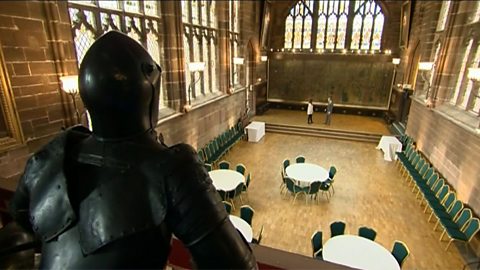
Did the Bard perform at Caludon Castle?
BBC Midlands Today's Satnam Rana takes a look around the remains of the historic monument
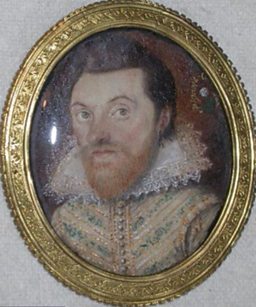
In fact, Lord Henry Berkeley is so wrapped up with the business of enjoying himself from his adopted home of Caludon Castle near Coventry, that his reputation among the movers and shakers of his day at the London court was to lead to him being branded 'Lord Henry the Harmless'.
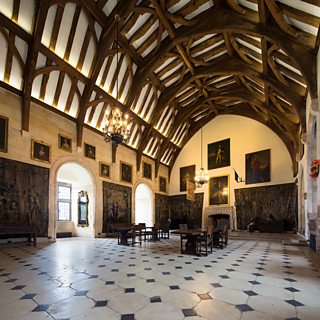
Lord Berkeley paid a considerable sum of 40 shillings to the Earl of Pembroke’s players as a reward for performing at the castle
It may sound like an episode from the BBC Children’s TV series Horrible Histories, but we know for a fact that on June 21 1593, Lord Berkeley paid a considerable sum of 40 shillings to the Earl of Pembroke’s players as a reward for performing at the castle.
This particular troupe of actors had several Shakespeare plays in their repertory at the time: Titus Andronicus, versions 2 and 3 of Henry VI and The Taming of the Shrew. The company had performed at court during the previous Christmas season but had taken to the road when the plague closed the London playhouses in February 1593… a tour which has since become known as Shakespeare’s 'Plague Tour'.
Their itinerary ranged from Rye to York but focused where their patron, the Earl of Pembroke, had greatest influence through his position as Lord President of the Council in parts of Wales: Shrewsbury, Ludlow, Bewdley, Coventry and Caludon.
We don’t know for certain which play or plays Pembroke’s Men performed for Henry Berkeley, but the Shakespeare plays were certainly more likely choices than another play in their repertory, Marlowe’s Edward II.
Marlowe’s play concludes with the imprisonment and brutal murder of King Edward II at… Berkeley Castle. One cannot imagine that Lord Henry would have enjoyed being reminded of that particular episode in his family’s history.
Who was 'Henry the Harmless'?
Lord Henry Berkeley received Pembroke’s players at Caludon Castle because the title to his family’s ancestral home at Berkeley Castle in Gloucestershire had been in dispute since the early fifteenth century.
He never wielded much influence at court, leading John Smyth (his estate manager and biographer) to nickname him ‘Lord Henry the Harmelesse.’
The Crown controlled the estate until James I finally restored it to Henry Berkeley in 1609. Caludon Castle came into the Berkeley's possession by marriage in the fifteenth century, and in the 1590s, perhaps discouraged about ever returning to Berkeley, Lord Henry was rebuilding Caludon as a residence fit for a noble of his stature.
That stature was not, however, so great as Henry thought it was. Although in the 1560s he had been one of the richest men in England, by 1593 he had spent a sizeable part of his fortune on legal proceedings to regain ownership of Berkeley Castle and squandered much of the rest.
According to his own estate manager and biographer, John Smyth of Nibley, Henry Berkeley "tooke too great a delight’ in music, hunting, and gambling on ‘bowles tenis Cockpit Shufgrote cards and dice" (Smyth ii, 362-4).
He never wielded much influence at court, leading Smyth to nickname him ‘Lord Henry the Harmelesse.’
Peter Greenfield, REED editor of Gloucestershire and Hampshire
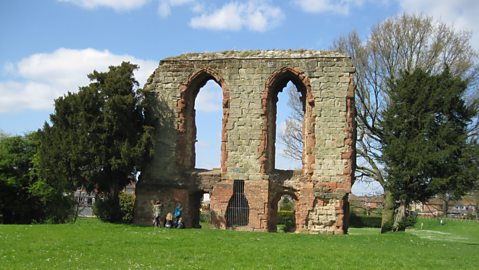
Which two Shakespeare plays have links to Caludon Castle? (Image credit: John Payne/Coventry Society)
BBC Coventry & Warwickshire's Marian McNamee met author John Clarke to find out more
Shakespeare on Tour
From the moment they were written through to the present day, Shakespeare’s plays have continued to enthral and inspire audiences. They’ve been performed in venues big and small – including inns, private houses and emerging provincial theatres.

BBC English Regions is building a digital picture which tracks some of the many iconic moments across the country as we follow the ‘explosion’ in the performance of The Bard’s plays, from his own lifetime to recent times.
Drawing on fascinating new research from Records of Early English Drama (REED), plus the British Library's extensive collection of playbills, as well as expertise from De Montfort University and the Arts and Humanities Research Council, Shakespeare on Tour is a unique timeline of iconic moments of those performances, starting with his own troupe of actors, to highlights from more recent times. Listen out for stories on Shakespeare’s legacy on your BBC Local Radio station from Monday 21 March, 2016.
You never know - you might find evidence of Shakespeare’s footsteps close to home…
Craig Henderson, BBC English Regions
-
![]()
Shakespeare Lives
The nation’s greatest performing arts institutions mark 400 years since the Bard's death
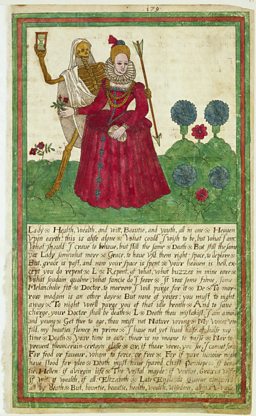
Related Links
Shakespeare on Tour: Around Coventry and Warwickshire
-
![]()
The year that Shakespeare's home town banned plays
A dramatic decision by the Stratford-upon-Avon town council explained
-
![]()
Macbeth at the back of the Craven Arms, Southam
Southam mentioned in Shakespeare's Henry VI Part Three
-
![]()
St Mary's Hall Coventry, a miraculous survival
A Shakespearean stage which came through the Nazi blitz
Shakespeare on Tour: Around the country
-
![]()
Lancaster Theatre sparkles with Shakespearean talent
The Grand Theatre in Lancaster, which was once managed by Stephen Kemble
-
![]()
Reading’s Puritans turn away Shakespeare
Shakespeare's men paid not to play in Reading
-
![]()
Belvoir Castle
Belvoir Castle, home of the Duke of Rutland
-
![]()
Did Shakespeare visit Bristol in 1597?
Civic accounts show a high amount of performances in Bath










